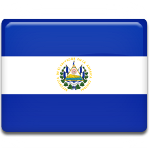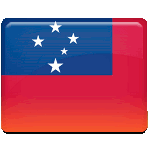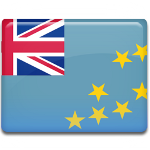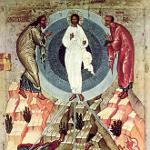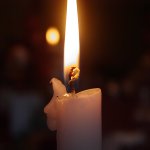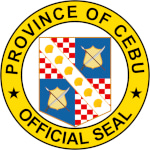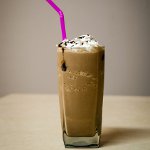Holidays Calendar for August 6, 2018
August 6 is Independence Day in Bolivia. This public holiday commemorates the establishment of the Republic of Bolivia (now the Plurinational State of Bolivia) in 1825.
Central American country El Salvador and its capital and largest city San Salvador were named after Jesus Christ who is considered their patron (El Salvador means “The Savior” and San Salvador stands for “Holy Savior”). Festivities dedicated to the patron of the country and its capital are held in El Salvador every August. They culminate on August 6, the feast of the Transfiguration of Jesus.
The national day of Jamaica is its Independence Day. It commemorates the proclamation of Jamaican independence from the United Kingdom on August 6, 1962.
The first Monday in August is Civic Holiday in most Canadian provinces. This holiday is known under different names in many provinces and municipalities.
Battle of Junín Day is a Peruvian public holiday celebrated annually on August 6. It commemorates one of the most important battles of the Peruvian War of Independence, compared by some historians to the Battle of Boyacá in Colombia in terms of historic significance.
Labor Day is one of the public holidays in Samoa. It's annually observed on the first Monday in August.
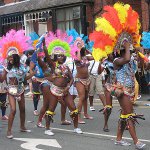 Public Holidays →
Anguilla,
Antigua and Barbuda,
Barbados,
British Virgin Islands,
Dominica,
Montserrat,
Saint Kitts and Nevis,
Turks and Caicos Islands,
Guyana,
Grenada,
Bahamas
Public Holidays →
Anguilla,
Antigua and Barbuda,
Barbados,
British Virgin Islands,
Dominica,
Montserrat,
Saint Kitts and Nevis,
Turks and Caicos Islands,
Guyana,
Grenada,
Bahamas
Emancipation Day (August Monday)
Emancipation Day is a common holiday for the former colonies of Great Britain and Guyana. This day is celebrated on the first Monday in August. At some point the holiday became the first day of the traditional Carnival and adopted the name of August Monday.
People across Zambia celebrate Farmers' Day on the first Monday in August. Zambians depend on farming very much, that is why this holiday praises their work.
The first Monday in August is National Childrens' Day in Tuvalu. This public holiday is called in Tuvalu Aso Tamaliki.
Iceland annually celebrates Commerce Day on the first Monday in August. This holiday appeared in 1894, and the first observation took place in Reykjavik.
The Feast of the Transfiguration of Jesus is observed by various Christian denominations. It is celebrated on August 6 by most churches that follow the Gregorian calendar. This date was chosen by Pope Callixstus III to commemorate the 1456 Siege of Belgrad.
Sailor Moon is one of the most popular manga and anime series of all time, so it is not surprising that Sailor Moon fans celebrate it not once, but twice a year: International Sailor Moon Day is observed on June 30 and on August 6.
Klippel-Feil Syndrome (KFS) Awareness Day is observed annually on August 6 to raise awareness of this rare congenital disorder that affects the vertebrae in the neck.
National Space Day (Hari Keantariksaan Nasional) is celebrated in Indonesia annually on August 6. It commemorates the promulgation of the Space Act of 2013 that outlines the national space policy of Indonesia.
Hiroshima Peace Memorial Ceremony is an annual vigil that takes place in the city of Hiroshima, Japan. It is dedicated to the victims of the atomic bombing of Hiroshima that occurred in August 1945.
Constitution Day is an Iranian observance held on August 6 each year (the 14th of Mordad in the Iranian calendar). It commemorates the events of the Iranian Constitutional Revolution of 1905–1911. It is not a public holiday.
Sheikh Zayed bin Sultan Al Nahyan’s Accession Day is observed in the United Arab Emirates on August 6. It honors the Emir of Abu Dhabi and the first president of the UAE, who is considered the founding father of the country. Although it’s not a public holiday, it’s marked with various events and activities that take place across the country.
Cebu Provincial Charter Day (Araw ng Panlalawigang Pribilehiyo ng Cebu) is a special non-working holiday celebrated in the Philippine province of Cebu on August 6 every year. It commemorates the day when Miguel Lopez de Legazpi was appointed as governor of Cebu.
August 6 is National Root Beer Float Day. This food related holiday celebrates a type of ice cream soda which is sometimes referred to as a “brown cow” or “black cow”.
National Fresh Breath Day is observed annually on August 6. It was created to raise awareness of the importance of fresh breath and encourage people to practice good dental hygiene and maintain their oral and gut health.
Festivals for August 6, 2018
- Wiz-Art Lviv International Short Film Festival in Lviv, Ukraine
- Sendai Tanabata Festival in Sendai, Japan
- Medieval Week on Gotland in Visby, Sweden
- International Computer Music Conference in Daegu, South Korea
- Folklorama in Winnipeg, Canada
- Pennsylvania Renaissance Faire in Manheim, USA
- Washington Midsummer Renaissance Faire in Bonney Lake, USA
- New York Renaissance Faire in Tuxedo, USA
- Akita Kanto Festival in Akita, Japan
- São Paulo International Book Biennial in São Paulo, Brazil
- Sidmouth Folk Festival in Sidmouth, United Kingdom
- Festival of the Flowers in Medellín in Medellín, Colombia
- Calgary Fringe Festival in Calgary, Canada
- Just Festival in Edinburgh, United Kingdom
- Cinemalaya Philippine Independent Film Festival in Manila, Philippines
This Day in History
- 2014 Died: John Woodland Hastings, American biochemist and academic, a leader in photobiology and one of the founders of circadian biology, a field of biology that studies the sleep-wake cycle.
- 2012 NASA's robotic rover Curiosity successfully landed on the surface of Mars. The landing was broadcast and watched by over 200,000 people.
- 2001 Died: Jorge Amado, Brazilian writer of the modernist school. He remains the best-known of modern Brazilian writers, with his work having been translated into some 49 languages and popularized in film.
- 2001 Born: Ty Simpkins, American actor. His notable film credits include Insidious, Insidious: Chapter 2, Jurassic World, Insidious: The Red Door, and Iron Man 3.
- 1998 Died: André Weil, French mathematician and academic, one of the most influential scientists of the 20th century. He is known for his foundational work in number theory and algebraic geometry.
- 1990 The United Nations Security Council ordered a global trade embargo against Iraq in response to Iraq's invasion to Kuwait.
- 1985 Died: Forbes Burnham, Guyanese politician, Prime Minister of Guyana from 1964 to 1980 and President of Guyana from 1980 until his death.
- 1982 Born: Romola Garai, British actress and film director who gained prominence for her performances in the critically acclaimed costume dramas such as Vanity Fair and As You Like It .
- 1981 Born: Leslie Odom Jr., American actor, singer and songwriter who gained wide recognition for his portrayal of Aaron Burr in Hamilton, which earned him a Tony Award for Best Actor in a Musical.
- 1979 Died: Feodor Lynen, German biochemist and academic, Nobel Prize laureate for discoveries concerning the mechanism and regulation of cholesterol and fatty acid metabolism.
- 1978 Died: Edward Durell Stone, American architect, early proponent of modern architecture in the USA. He is known as the designer of Radio City Music Hall (New York) and the Kennedy Center (Washington, D.C.).
- 1978 Died: Pope Paul VI, born Giovanni Battista Enrico Antonio Maria Montin. He is known for the implementation of numerous reforms that improved relations with the Eastern Orthodox Church and Protestants.
- 1973 Born: Vera Farmiga, American actress and film director. Her film credits include The Manchurian Candidate, The Boy in the Striped Pyjamas, the Conjuring film series, and more.
- 1972 Born: Geri Halliwell, English singer, songwriter, television personality, author, and actress. She rose to fame as a member of the pop group the Spice Girls, in which she was nicknamed Ginger Spice.
- 1970 Born: M. Night Shyamalan, American filmmaker. His best known films include The Sixth Sense, The Village, The Visit, Unbreakable, Split, Glass, and others.
- 1964 The world's oldest tree, Prometheus, was cut down by a graduate student and United States Forest Service personnel for research purposes. It was at least 4,862 years old.
- 1963 Born: Kevin Mitnick, American computer security consultant, author, and convicted hacker. He is best known for his high-profile 1995 arrest and five years in prison for various computer and communications-related crimes.
- 1962 Born: Michelle Yeoh, Malaysian actress. She rose to fame in the 1980s and 1990s after starring in Hong Kong action films. In 2022, she wan an Academy Award for her role in Everything Everywhere All at Once.
- 1959 Died: Preston Sturges, American director, screenwriter, and playwright, winner of the Academy Award for Best Original Screenplay for the film The Great McGinty.
- 1945 Died: Richard Bong, American soldier and pilot. He is known for his highest-scoring air race, having shot down at least 40 Japanese aircraft during WWII. In 1944, he received the Medal of Honor.
- 1940 The Soviet Union illegally annexed the territory of Estonia.
- 1928 Born: Andy Warhol, American visual artist, film director and producer, a leading figure in the pop art movement. He is considered one of the most important American artists of the second half of the 20th century.
- 1926 Gertrude Ederle, American competitive swimmer and Olympic champion, became the first woman to swim across the English Channel.
- 1911 Born: Lucille Ball, American actress, comedian, producer, and studio executive. She was nominated for 13 Primetime Emmy Awards, winning five times, and was given two stars on the Hollywood Walk of Fame.
- 1890 At Auburn Prison in New York, murderer William Kemmler became the first person to be executed by electric chair. He was convicted of murdering his common-law wife a year earlier.
- 1881 Died: James Springer White, American religious leader, remembered as a co-founder of the Seventh-day Adventist Church.
- 1881 Born: Alexander Fleming, Scottish biologist, pharmacologist, and botanist, the author of numerous articles on bacteriology, chemotherapy and immunology. He received the Nobel Prize in Physiology or Medicine in 1945.
- 1826 Born: Thomas Alexander Browne, Australian author, best known for his novel Robbery Under Arms, which is considered to be one of the greatest Australian colonial novels.
- 1819 Norwich University was founded in Vermont as the first private military school in the United States.
- 1809 Born: Alfred Tennyson, English poet. He was the Poet Laureate during much of Queen Victoria's reign. Tennyson's early poetry was a major influence on the Pre-Raphaelite Brotherhood.
- 1806 Francis II abdicated as Holy Roman Emperor, in effect dissolving the empire. After that, he continued to reign as Francis I, Emperor of Austria.
- 1766 Born: William Hyde Wollaston, English chemist and physicist, famous for the discovery of the elements palladium and rhodium. He also found a method of processing platinum ore into malleable ingots.
- 1661 Portugal and the Dutch Republic signed the Treaty of the Hague. Under the treaty, the Dutch Republic recognized Portuguese imperial sovereignty over New Holland (Brazil).
- 1660 Died: Diego Velázquez, Spanish painter, the leading artist in the court of King Philip IV and one of the most important painters of the Spanish Golden Age.
- 1644 Born: Louise de La Vallière, the first mistress of King Louis XIV of France from 1661 to 1667. They had five children, but only two of them survived infancy.
- 1538 Spanish explorer and conquistador Gonzalo Jiménez de Quesada founded Bogotá, the present-day capital of Colombia.

